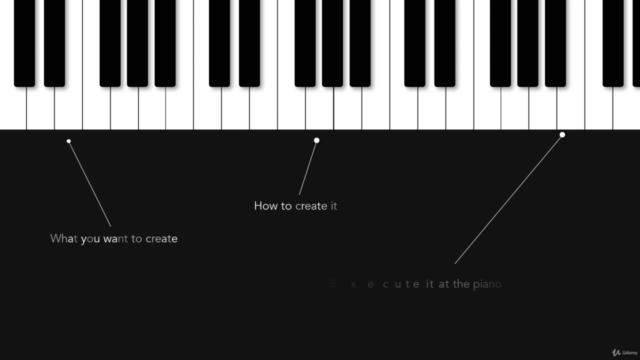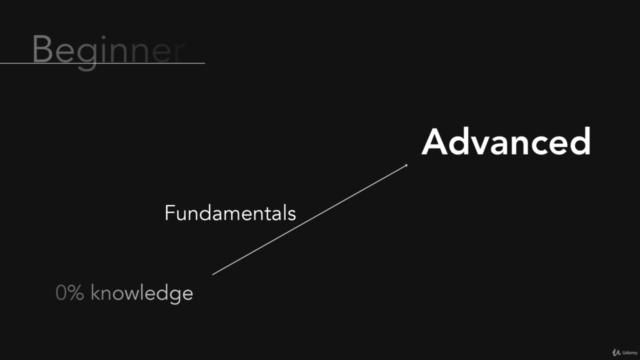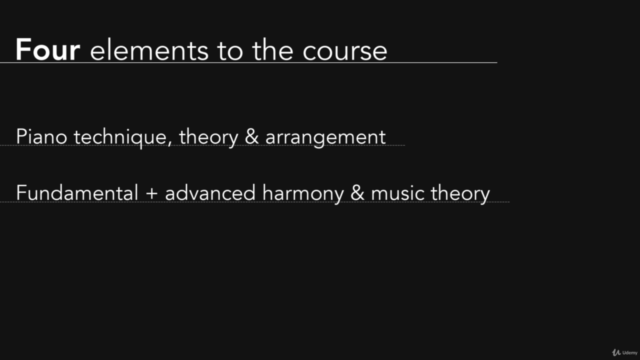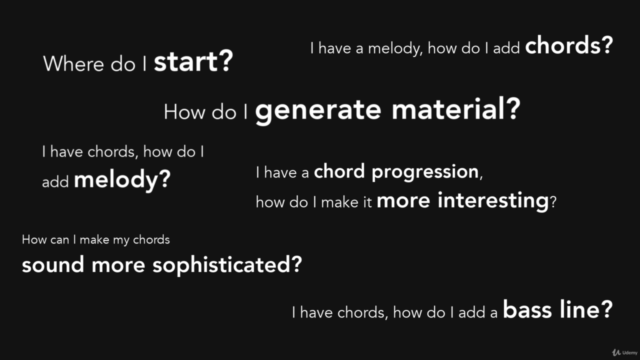Music Composition with the Piano: Ultimate Keyboard Theory

Why take this course?
It seems like you've outlined a comprehensive music theory and composition course that covers a wide range of topics from the basics of piano playing to advanced harmonic concepts. The course promises to equip students with the tools to express themselves musically, compose effectively across various genres, and understand the science behind musical sounds.
Here's a summary of what the course aims to cover:
-
Expressing Musical Ideas: Learn to communicate your musical ideas fluently through understanding simple patterns at the piano.
-
Composition Skills: Master the fundamentals of music theory and composition, which are generally applicable across different music styles.
-
Writing Assistance: Overcome writer's block by learning techniques to generate material easily and teach others the basics of music theory.
-
Genre Flexibility: Write in a variety of genres from classical to mainstream due to the shared foundation of harmony.
-
Chord Mastery: Learn how to create a wide range of chords, including major, minor, and complex extensions like 7ths, 9ths, 11ths, and 13ths.
-
Songwriting: Write songs, learn about chord progressions, and understand how to manipulate them for your compositions.
-
Jazz and Improvisation: Learn how to play jazz chords and improvise effectively within the jazz idiom.
-
Film and Game Composition: Compose music for visual media and create themes for characters in films or musicals.
-
Piano Proficiency: Understand piano scales, accompany singers, and learn accompanimental patterns.
-
Musical Analysis: Analyze music, read chord symbols, find the key of a song, understand why certain sounds are favored by artists, and create interesting melodies.
-
Structuring Compositions: Structure your compositions with harmony and voice leading, and learn how to arrange for orchestral strings and create bass lines.
-
Tension and Resolution: Understand the concept of tension and resolution in music writing.
-
Reharmonization: Make your chord progressions rhythmically interesting by reharmonizing.
The course emphasizes providing options and fluency so that students can develop their unique musical voice and style. It promises to be theory-heavy but practical, aiming to teach effective thinking and learning strategies in music.
Jack Vaughan, the instructor, appears to have a focus on teaching effectiveness and aims to avoid any unnecessary content, ensuring that the course is condensed, to the point, and rich with information.
If you're interested in taking this course, it sounds like it would be a comprehensive journey through music theory and composition, suitable for pianists and composers of all levels looking to deepen their understanding and expand their musical toolkit.
Course Gallery




Loading charts...
Comidoc Review
Our Verdict
Music Composition - The Ultimate Guide to Piano, Chords & Music Theory offers a comprehensive yet accessible approach to music theory within the context of composing. While catering to both beginners and experienced musicians looking to brush up on their foundations, some users may find certain aspects too challenging or fast-paced. Fortunately, engaging visuals and an idiosyncratic focus keep lessons dynamic. Consider acquiring basic knowledge before diving in to maximize comprehension.
What We Liked
- Idiosyncratic system allows for unique understanding of music theory
- Well-structured information with practical tips for composing
- Engaging visuals supporting course material
- Useful for both beginners and experienced composers seeking a refresher
Potential Drawbacks
- Not beginner-friendly; basic theory knowledge recommended
- Instructor's assumption of student's familiarity with concepts can be confusing
- Limited guidance on using MIDI controller for those lacking piano skills